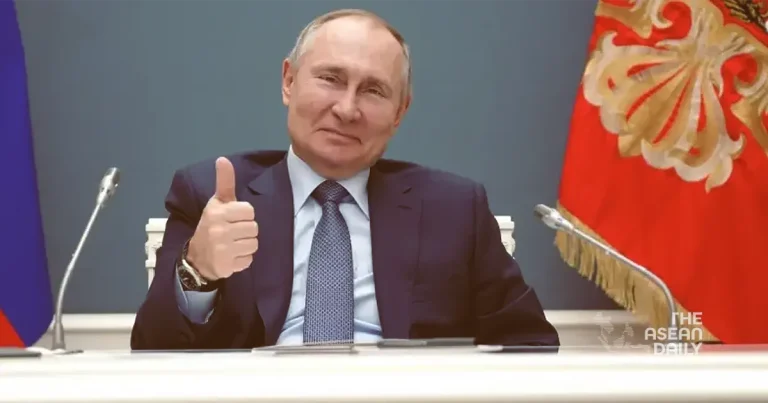2-7-2024 (SINGAPORE) As the bloody war of attrillion between Russia and Ukraine grinds on without an end in sight, a new Pew Research Centre survey has revealed intriguing shifts in global perceptions towards the key players involved.
The nationally representative surveys, conducted between January and May 2024, polled 40,000 respondents across 35 countries, including around 1,000 each in Singapore and Malaysia. The findings underscore the continuing challenge Ukrainian President Volodymyr Zelensky faces in garnering international support, particularly in Asia.
In Malaysia, the number of people with a favourable view towards Russia leapt 10 percentage points from 2022 to 57 per cent. Additionally, 61 per cent of Malaysians now expressed confidence in President Vladimir Putin to “do the right thing regarding global affairs”, up 2 percentage points.
The situation in Singapore is more nuanced. While the percentage of respondents who held a favourable view of Russia saw a six-point increase from 2022 to 34 per cent, a majority (60 per cent) of Singaporeans still had little to no confidence in Mr Putin, and 63 per cent held an unfavourable view of Russia.
Notably, a majority of people in both Singapore and Malaysia expressed “none” or “not too much” confidence in Mr Zelensky, with confidence in the Ukrainian leader also dipping in countries across Europe, according to the Pew survey.
Dr Ian Storey, a senior fellow at ISEAS – Yusof Ishak Institute, said the fact that 60 per cent of Singaporeans surveyed did not express confidence in Mr Putin indicated that “many people agree with the (Singapore) Government’s position that Russia’s invasion of Ukraine was an egregious violation of international law and the UN Charter, and that it has undermined the rules-based international order”.
For Malaysia, Dr Benjamin Loh, a visiting fellow at ISEAS – Yusof Ishak Institute, believes that as a result of the ongoing conflict between Hamas and Israel in the Middle East, support for the US has dropped in the Muslim-majority country, while support might have concurrently risen for nations seen as opposing the US, such as Russia.
“Russia has always been seen as the one superpower that is sympathetic to Muslims around the world… They have painted themselves as this very, very important superpower for the Global South to a certain degree,” Dr Loh said.
The survey also found that a majority of the people in Singapore, Malaysia and Thailand did not have confidence in Mr Zelensky to do the right thing regarding world affairs. In Singapore, 55 per cent of the respondents said they had little to no confidence in the Ukrainian President, while only 42 per cent said they had a lot or some confidence in him.
Dr Storey noted that in South Asia, as well as South-east Asia, both Mr Putin and Russia are generally viewed a lot more favourably than elsewhere in the world, as these regions are geographically far away from the conflict in Europe, and some states have always had pretty good relations with Russia.
The survey results underscore the continuing challenge Mr Zelensky faces in garnering international support for his country, particularly in Asia, as the war in Ukraine grinds on with no end in sight.




